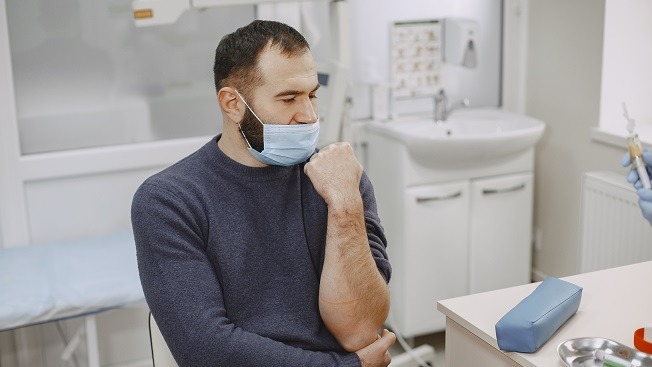Now that more people are feeling safe to go back to annual cancer screenings, the good news is once again, routine cancer screenings and cancer treatments are making a comeback. However, a troubling downside of the coronavirus pandemic has become apparent. More of these patients are being diagnosed with cancer at more advanced stages than before the pandemic.
Cancer rates during the pandemic
Over the course of one year, a survey was taken of doctors who work with cancer patients finding that up to two-thirds of radiation oncologists found newly diagnosed patients had more advanced-stage cancer and that still up to 73% of patients were not getting treated. These same radiation oncologists stated that up to two-thirds of patients had interrupted radiation treatment during coronavirus. On a positive note, patients are not as reluctant to return to annual cancer screenings and cancer treatments as they were one year ago at this time.
Currently, clinics are opening back up and have started seeing new cancer patients. When compared to last year, only 15% of clinics had postponed cancer treatments during January and February of this year compared to 92% in April 2020.
Why are there still clinics that are not operating at full capacity? Part of the holdup for these clinics was having sufficient personal protective equipment, hand sanitizer, and other supplies on hand. Other issues have been the reluctance of both medical staff and patients to getting the coronavirus vaccine. This reluctance has mainly been seen in more rural and community clinics than in urban and academic settings.
What are the effects of telemedicine?
The exponential use of telemedicine has been another important driver in getting patients in front of their providers and the care they need. The survey found that 85% of clinics offer telemedicine options for follow-up surveillance visits and 54% do so for new patient consults. However, not all patients embrace using telemedicine for their healthcare. Patients stated that telemedicine visits lack emotional support and have created a sense of isolation and a feeling of limited access to the cancer care team. When feeling alone or isolated, this creates problems for some patients to fully advocate for themselves if they feel they are not being heard by their provider.
Other factors affecting healthcare for cancer patients during the pandemic include losing health insurance due to unemployment taking a toll on the availability of cancer screenings and diagnosis.
In my specialty, prostate-specific antigen (PSA) screenings for detecting prostate cancer fell by 60 percent. Some urologic cancers, such as early-stage prostate cancer, can withstand a delay in screening due to their slow-growing nature. But men with an undetected more advanced or aggressive prostate cancer growing inside of them and not knowing it, delays in screenings can mean the difference between life and death.
Overall, care for cancer patients and routine cancer screenings have opened up and should continue to remain open for our patients. Cancer screenings are our first-line in playing offense helping doctors find and treat cancer early. As we all know, the earlier cancer can be found, the easier it is to treat and to prevent the chance of malignant tumors from spreading throughout the body. That should always be the goal of catching cancer early, treat it appropriately with routine follow-ups, and educating patients on staying as healthy as possible going forward.


